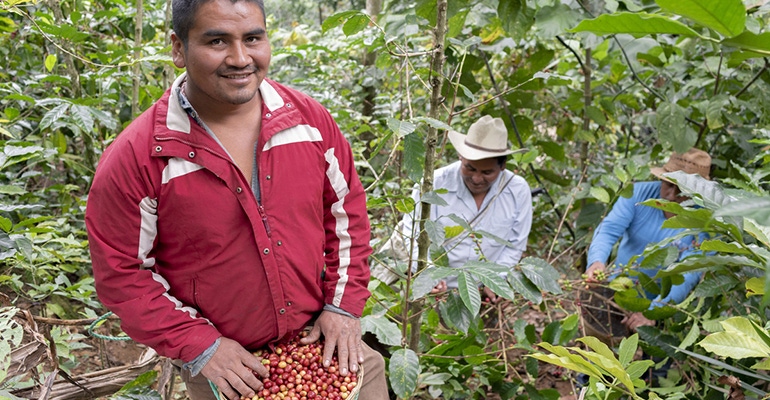Farmers working in industries with complex supply chains, such as coffee, require democracy in data to obtain a living wage.

Data tracking and analysis are essential tools for most businesses to help determine where they are succeeding and, more importantly, where adjustments need to be made to remain viable and profitable. Many companies would essentially be flying blind without accurate business forecasts, competitive intelligence, information regarding industry trends and realistic growth metrics.
Industries with complex supply chains, such as coffee, are especially reliant on sophisticated data streams from a variety of sources. Coffee traders, roasters and exporters routinely evaluate the efficiency of their operations using detailed data, and are embracing newer technologies, such as blockchain, to deliver information through an efficient and consistently reliable data stream. While this move to increased transparency is promising, there is a risk to equating that transparency with sustainability.
If the goal is supply chain sustainability, then the movement of data needs to be a two-way street, sharing vital information among all stakeholders. If coffee farming is going to be a viable and profitable business, then farmers need access to market expectations, industry trends, commodity pricing and value distribution throughout the supply chain.
Coffee traders and roasters currently collect a wealth of data from coffee producers and cooperatives to help minimize risk, inform business decisions and to share the story of coffee with their customers. To evaluate sustainability benchmarks, child labor abatement and progress toward living income, coffee buyers often require producers to divulge various levels of personal information, such as annual earnings, number of family members and what portion of their income is spent on education, food and health care.
While this data may provide insights into the intimate details of a coffee farming family's lives, it offers very little value to those same families and risks continuing a cycle of south to north extraction that can often be traced to a colonial past.
In spite of the increasing challenges associated with climate change, decreasing soil fertility rates and sustained low market prices, many coffee farmers continue to rely on traditional farming practices that can adversely impact their yields, quality and, ultimately, their annual income. Most coffee farmers receive only one paycheck per year, so decisions made at the beginning of the season can have a ripple effect of consequences that play out over several months. While some farmers are part of a cooperative, many others work independently in remote locations without the advantage of information sharing and the opportunity of learning the newest best-practices from their peers.
Producers can always benefit from insights into market expectations on quality and flavor profiles, as well as how engaging in environmental and social development projects can result in better prices and improved livelihoods. Access to information on how coffee gains value through the supply chain can help them in negotiations with first buyers. Put simply, democratizing data would give farmers a seat at the table in determining the value distribution of their crops as they move through the supply chain while offering the next generation of farmers a pathway toward a sustainable and viable future.
Fairtrade International, represented in the U.S. by Fairtrade America, is championing data sharing as part of a comprehensive living income strategy. Here are three ways data sharing would progress the coffee industry toward living incomes for producers:
Sustainable farm yields: Information has the power to help farmers grow the same amount of crops on less land, thus freeing up space to produce other crops to supplement their income and reduce independence on a single product.
Farm cost efficiency: Fairtrade is developing tools to help farmers track their actual production costs and revenues, equipping them to make informed business decisions and become more efficient farmers.
Creating an enabling environment: We are raising awareness and advocating alongside like-minded companies, governments and civil society to make living incomes for farmers the norm.
Fairtrade encourages all members of the coffee industry to join them in providing farmers with the necessary tools, especially data, to guarantee a decent standard of living for all stakeholders in the coffee supply chain, thereby ensuring that the future of coffee is one of shared prosperity through collaborative effort.
About the Author(s)
You May Also Like




